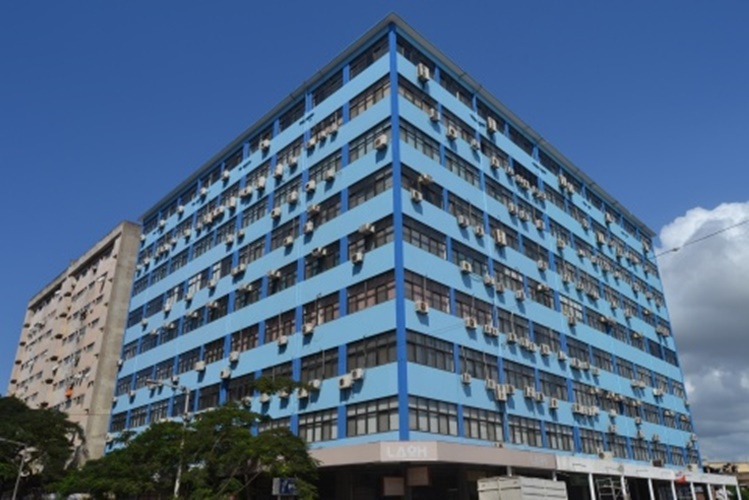Mozambique: Government exempts more than 80 activities from prior licensing and inspection
Collapse of Nosso Banco does not undermine INSS finances – Mozambique

File photo / INSS in Maputo
The collapse of the small Mozambican retail bank, Nosso Banco (“Our Bank”), is not a major blow to the finances of the National Social Security Institute (INSS), even though it was the largest shareholder in Nosso Banco, according to figures released today by the Minister of Labour, Employment and Social Security, Vitoria Diogo.
Speaking in the Mozambican parliament, the Assembly of the Republic on Thursday, during a debate on the failure of the bank, Diogo said that, as of September this year, the total investment portfolio of the INSS amounted to 20.7 billion meticais (about 279 million US dollars).
The failure of Nosso Banco does not affect the INSS’s ability to meet its commitments. Its reserves, Diogo stressed, are well above the prudential limits, and the latest actuarial study undertaken by the International Labour Organisation (ILO) showed that the Mozambican social security system is sustainable. Hence all pensioners and other beneficiaries, she insisted, could be certain that the INSS would go on paying them their pensions and allowances on time.
Almost two thirds of the INSS investments (64.66 per cent) is held in deposit accounts, 20.32 per cent is investment in real estate, 7.7 per cent is held in bonds, and only 6.85 per cent in shares in various companies, including Nosso Banco.
Diogo said that, between January and September, the INSS investments generated revenue of 1.243 billion meticais. 82 per cent of this came from interest on the deposit accounts, nine per cent from the companies where the INSS holds shares, and nine per cent from other applications.
Nosso Banco appears in these calculations twice – first because of the 77.2 per cent shareholding of the INSS, and second, because Nosso Banco was one of the commercial banks where the INSS held accounts.
Diogo said that the INSS had a total of 13.4 billion meticais in deposit accounts. Of this sum, 2.7 billion (20.3 per cent) was held in Nosso Banco.
As for the shareholding, Diogo said the INSS first invested in Nosso Banco (then known as the Merchant and Investment Bank, BMI) in 2001. This was a total investment of 7.7 million meticais, which was 25 per cent of the BMI share capital.
The INSS took part in two increases in BMI capital – it injected 131.3 million meticais into the bank in 2006, bringing its shareholding up to 66.3 per cent. In 2014, it threw an addition 313.6 million meticais into Nosso Banco, and its holding reached 77.2 per cent.
Diogo said that the INSS had not only put in its own share oF the increase in capital, but also covered the increases that other shareholders should have paid. She did not specify which other shareholders were covered by the INSS.
Thus the total INSS investment in the BMI/Nosso Banco from 2001 until 2014 was over 452 million meticais. Throughout this period, the INSS received nothing back. The BMI never paid any dividends to its shareholders.
The INSS investment policy and strategy adopted in 2015 instructed the INSS management to reduce the Institute’s exposure in unprofitable companies, including Nosso Banco. On 24 October, the INSS told Nosso Banco it intended to reduce its holding in the bank and sell some of its shares. But this came just a fortnight before the Bank of Mozambique ordered the liquidation of Nosso Banco.
Diogo said that the INSS now expects the liquidation commission to ensure that it is repaid all the money it held as a depositor and which it has invested over the years. That would be a total of over 3.15 billion meticais.
There is no guarantee that the INSS will receive any of this. The company Deloitte has been appointed to liquidate Nosso Banco, and it must work out the full value of the bankruptcy estate. The bank’s creditors, workers and clients all demand payment, and the shareholders are at the back of the queue.
In the parliamentary debate on Nosso Banco, opposition deputies accused previous governments of forcing the INSS and EDM to become shareholders in the bank. “The only intention was to satisfy minority shareholders who were leaders of Frelimo”, accused Antonio Muchanga of the rebel movement Renamo.
He claimed that previous governors of the Bank of Mozambique, first Adriano Maleiane (who is now Finance Minister) and then Ernesto Gove, should have taken the decision to wind up the BMI. He demanded to know why the INSS continued to pour money into the BMI, when there was no return.
“The INSS and EDM cannot be the milk cows for an organized crime gang”, Muchanga exclaimed.
Jose Lobo, of the second opposition party, the Mozambique Democratic Movement (MDM), demanded that the Bank of Mozambique publish a list of Nosso Banco’s debtors. He said the current management of the INSS should be sacked, and called on Diogo herself to resign.













Leave a Reply
Be the First to Comment!
You must be logged in to post a comment.
You must be logged in to post a comment.